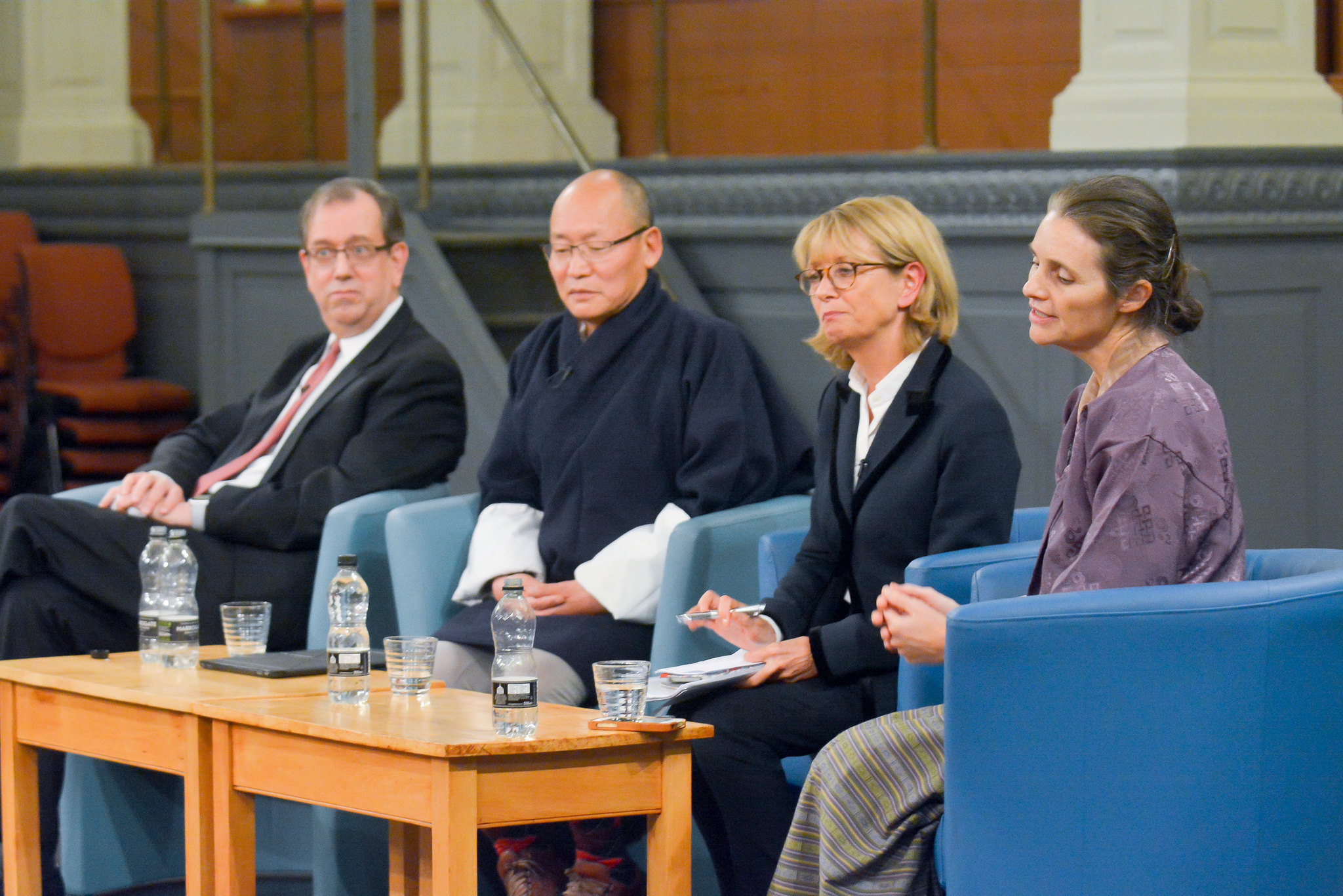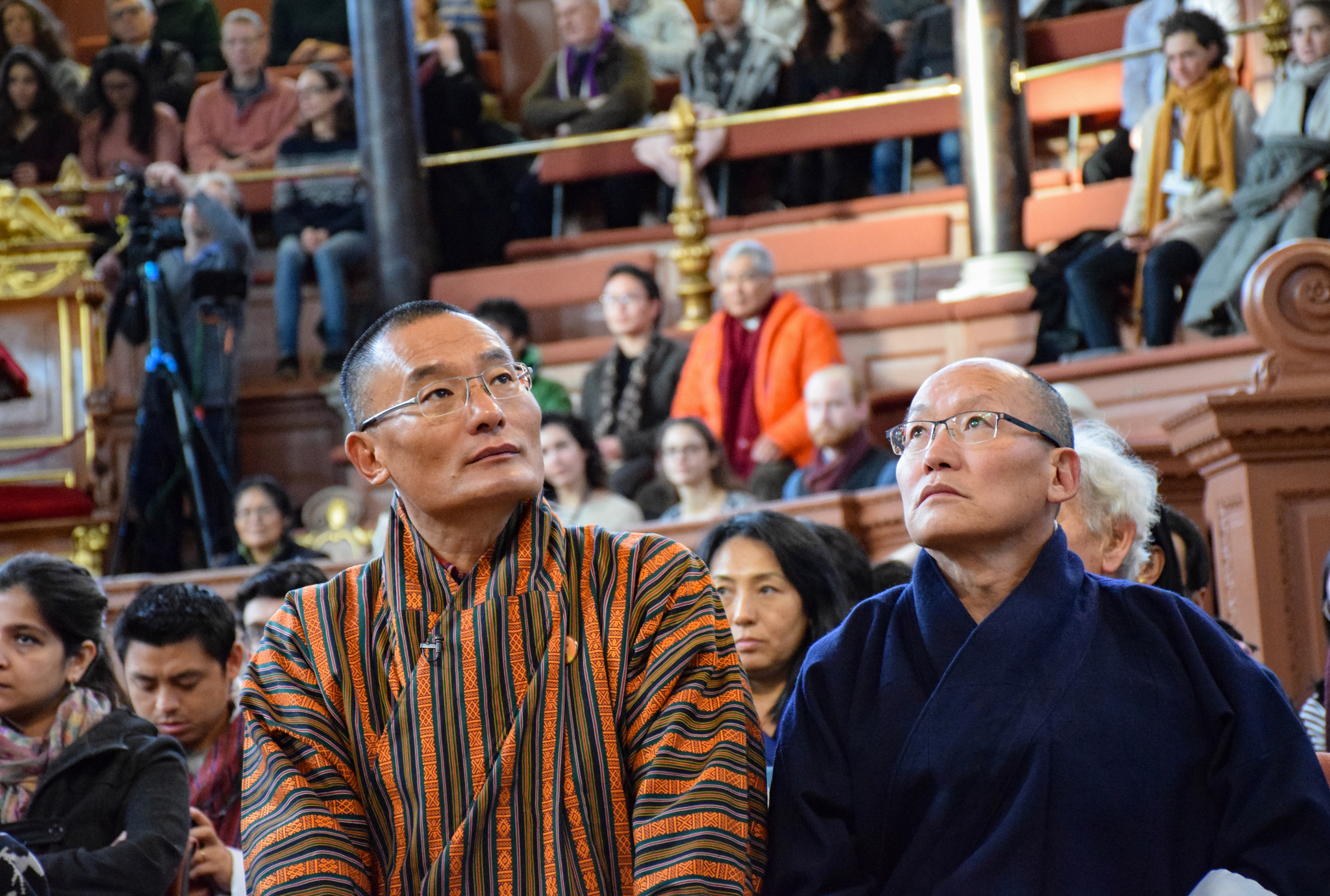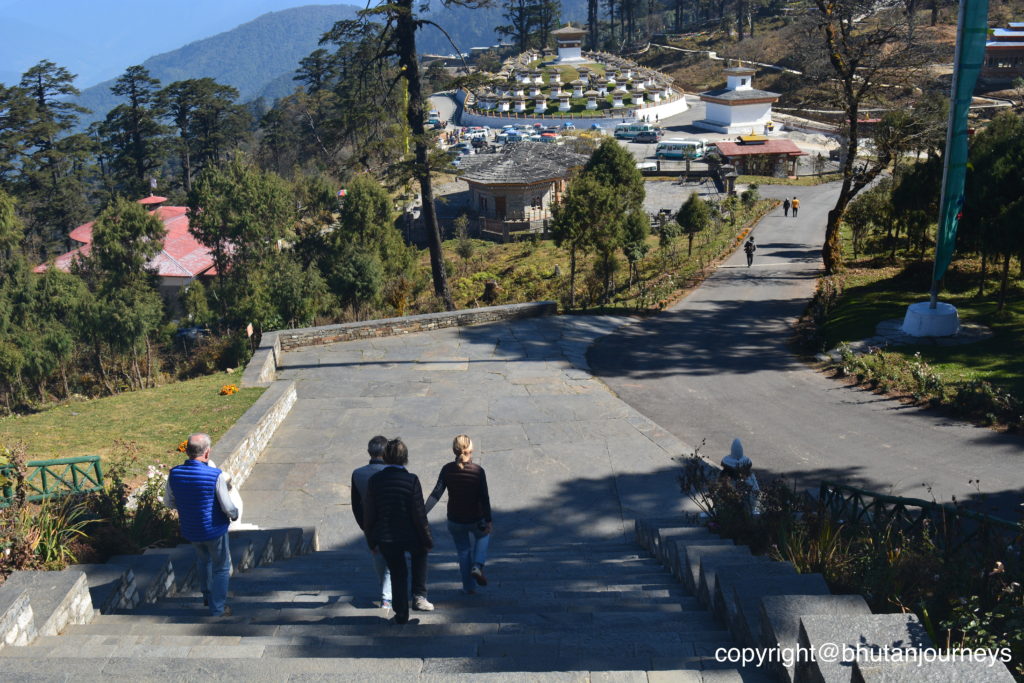All posts by sabina alkire
CONFERENCE POWERPOINTS
ABOUT the conference
During the Conference on 9 January 2019 (from 15:00 – 18:30), there were Distinguished Lectures by the Former Prime Minister of Bhutan, His Excellency Dasho Tshering Tobgay, and the President of the Center for Bhutan Studies and Gross National Happiness, Dasho Karma Ura, with the Vice-Chancellor of Oxford University, OECD’s Martine Durand, and Economists’ Prof. James Foster.
The ISBS launch conference reflect the ISBS aims in microcosm:
- As the ISBS is multidisciplinary, the conference will feature papers on topics from linguistics to history to natural science to Buddhism to economics and business and so on.
- As the ISBS promotes research excellence, papers will reflect the cutting edge research internationally on Bhutan.
- As the ISBS seeks to support Bhutanese scholars, both junior and established, this conference will feature their voices alongside international scholars.
- As the ISBS seeks to create intellectual community and academic exchange so the conference will provide spaces for mentoring, networking, and sharing.
- As the ISBS seeks to contribute to the happiness of future generations, so the ethos of our exchange will be to engage both the guardians of culture and tradition and those able to use the research to enact positive change.
- As the ISBS seeks to be inclusive, we welcome gifts that sup-port the participation of all scholars.
BHUTAN AND INTERNATIONAL LINKS
Bhutanese Journals
There are five journals published in Bhutan at present:
- Journal of Bhutan Studies The oldest of the journals, the Journal of Bhutan Studies was founded in 1999 by the Centre for Bhutan Studies. This journal is a twice-yearly, blind peer-reviewed publication aimed at promoting scholarly research on the social, cultural and economic aspects of Bhutan.
- Bhutan Journal of Natural Resources and Development This journal aims to provide a forum for home academics and scholars to publish their work in regards to promoting sustainable utilization of arable agriculture and pasture land resources as well as the enhancement of food security. Starting in 2014 with biennial publication, the journal replaced the previous Journal of Renewable Natural Resources Bhutan.
- Bhutan Journal of Research and Development Published biannually since 2012 by the Royal University of Bhutan, this journal aims to advance research and scholarship in all fields of social, physical and biological sciences as well as the humanities relevant to the Kingdom of Bhutan. It publishes a wide range of papers in English or Dzongkha including theoretical or empirical research, short communication (e.g. research notes and review articles), and book reviews which can inform policy and advance knowledge relevant to Bhutan. The journal aspires to publish high quality papers and follows a system of blind peer review.
- Druk Journal Starting in 2015, the Druk Journal is the first journal in Bhutan concerned with serving Bhutan’s national interests by creating serious conversation around major policy issues. The journal is published by the Bhutan Centre for Media and Democracy and supported by Open Society Foundations.
- Bhutan Health Journal The first scientific Medical Journal to publish biannually from Bhutan. It is internationally peer reviewed and incorporates Clinical, Para-Clinical, Medical Education, Nursing and Midwifery, Traditional Medicine, Public Health, Health Policy, Planning and Financing, Hospital and Health Care Management, Research and Publication Ethics as well as perspectives from various fields of health sciences to improve health in Bhutan.
Previously: Journal of Renewable Natural Resources Bhutan
This journal was an annual research publication published by the Council for Renewable Natural Resources Research of Bhutan (CoRRB), Ministry of Agriculture. It was mandated to present well-researched articles on RNR in Bhutan with the aim of enhancing sustainable rural livelihood and conservation as well as promoting sustainable utilization of forest and water resources. The journal lasted from 2006 to 2014.
Higher Education Institutions
- College of Natural Resources
Centre for excellence on rural development services.
Location: Thimphu - College of Science and Technology
The only institute in the country offering undergraduate degree programmes in engineering which were introduced in 2001 by Royal Command. Responsible for overseeing Bhutan’s tertiary education system in the field of science and technology.
Location: Phuntschoeling - Gaeddu College of Business Studies
The only premier college under the Royal University of Bhutan offering full time contemporary business and management education in the country.
Location: Chukha - College of Language and Cultural Studies
Centre for higher learning and research in Dzongkha, Culture, History, Buddhist Studies, and Himalayan Studies, as well as a premier institution for cultural preservation and promotion.
Location: Trongsa - Jigme Namgyel Engineering College
Centre of excellence in diploma and degree level programmes in Applied Engineering and technology, covering a wide spectrum of programmes.
Location: Samdrup Jongkhar - Paro College of Education
Ensures quality education based on the values and principles of GNH for primary and Zhungkha teacher education, educational leadership, and research.
Location: Paro - Sherubtse College
A multidisciplinary institution offering a wide range of undergraduate programmes in the arts, humanities, social sciences, and physical and biological sciences.
Location: Trashigang - Samtse College of Education
The premier educational institution in the country providing training to primary, secondary and postgraduate teachers.
Location: Samtse - Royal Institute of Management
A premier centre in management development and policy research in the region with a mission to develop socially and professionally responsible, proactive leaders and managers with holistic values and competencies.
Location: Thimphu - Royal Thimphu College
Bhutan’s first private college, which offers general degree programs under the auspices of the Royal University of Bhutan.
Location: Thimphu - Tango Buddhist University
Location: Thimphu - Royal Academy
The Royal Academy is a visionary initiative of His Majesty The King that is being developed as an enduring tribute to the unparalleled leadership and the rich legacy of His Majesty Jigme Singye Wangchuck, the Fourth Druk Gyalpo. The guiding philosophy of the Royal Academy focuses on the holistic development of individuals to help them actualise their innate potential across all areas of development – cerebral, physical, social, emotional and spiritual, and enables each individual to become exceptional leaders and good human beings. Emphasis is given not only to high academic achievement but also to development of character that fosters fundamental values such as honesty, integrity, teamwork, generosity and compassion towards others. Through this approach, the Royal Academy will promote a culture of excellence in all aspects of student life.
Location: Paro - Jigme Singye Wangchuck School of Law
The first and only law school in the Kingdom of Bhutan, Jigme Singye Wangchuck School of Law was founded in 2015, by the promulgation of a Royal Charter by His Majesty the King. His Majesty envisioned that the law school would “provide legal education, facilitate research in law and related fields, [and] promote cultural enrichment and traditional values.” The permanent teaching faculty are drawn from across Bhutan and around the world, and are supplemented by top visiting faculty from abroad. Admitted students study at the law school for five years, leading to a qualifying degree in law.
Location: Thimphu - Norbuling Rigter College
The second private college affiliated with the Royal University of Bhutan, NRC offers degrees in commerce and business administration.
Location: Paro - Gyalpozhing College of Information Technology
Founded in 2017, GCIT is one of the integral colleges of the Royal University of Bhutan. The college at its initial stage offers an undergraduate degree in computer applications.
Location: Mongar - Khesar Gyalpo University of Medical Sciences of Bhutan
The first medical school in Bhutan, Khesar Gyalpo University of Medical Sciences was inaugurated in 2015.
Location: Thimphu
Bhutanese Research Centres
- Centre for Bhutan Studies
An autonomous social science research institute that conducts inter-disciplinary research for advancing Bhutan’s social, cultural, economic, environmental and political wellbeing.
Location: Thimphu - Shejun Agency for Culture Documentation and Research
The Shejun Agency was established with the aim of preserving and passing on the rich cultural heritage of Bhutan to future generations. Shejun means knowledge (ཤེས) transmission (རྒྱུན་) in Classical Tibetan and Dzongkha.
Location: Thimphu - Loden Foundation
The Loden Foundation is dedicated to fostering an enlightened and happy society in Bhutan through promotion of education, learning and entrepreneurship among Bhutanese children and young adults.
Location: Thimphu - Ugyen Wangchuck Institute for Conservation and Environmental Research (UWICE)
An institute with a special focus on the environment. It disseminates its research through trainings, publications, and conferences.
Location: Bumthang - National Library of Bhutan
A major scriptural repository and research facility dedicated to the preservation and promotion of the rich literary, cultural and religious heritage of Bhutan.
Location: Thimphu - Music of Bhutan Research Centre
Preserves and promotes Bhutanese culture through professional research, recording and archiving of the many musical traditions found in the country’s diverse regional, linguistic and ethnic groups. It also documents the finest living master musicians in performance and interviews.
Location: Thimphu - National Museum of Bhutan
An institute dedicated to the preservation, promotion, and conservation of tangible and intangible cultural heritage in keeping with the fulfillment of the Gross National Happiness.
Location: Paro - Royal Institute for Governance and Strategic Studies
A premier institute promoting excellence in governance, leadership and strategic studies.
Location: Phuntsholing - Royal Society for Protection of Nature
Inspiring personal responsibility and active involvement of the Bhutanese people to preserve Bhutan’s environment through education, research and sustainable livelihood opportunities.
Location: Thimphu - Royal Academy of Performing Arts
Founded in 1954 through the initiative of the Third Druk Gyalpo Jigme Dorji Wangchuck, it is also under the Ministry of Home and Cultural Affairs, Department of Culture, where they carry out research on folk songs and mask dance. In addition, the academy also preserves traditional Bhutanese culture.
Location: Thimphu
Overseas Centres
- Department of Bhutan Studies, Kokoro Research Center, Kyoto University
The Kokoro Research Center promotes scientific research on the mind and consciousness, which spans the disciplines of psychology, neurophysiology, cognitive sciences, cultural studies and the humanities. The center aims to develop community outreach solutions through wide-ranging interdisciplinary research involving interdepartmental and international collaboration. Through its research, the center aspires to contribute to a humanity and mentality suited to life in the coming global era.
Location: Kyoto, Japan - Association for Nepal and Himalayan Studies
The Association for Nepal and Himalayan Studies (ANHS) is the oldest academic organization devoted to the study of the Himalaya in the United States. ANHS was founded in 1971 as the Nepal Studies Association with support from the Ford Foundation.
Location: Wisconsin, USA - Tibetan and Himalayan Studies, Wolfson College, Oxford
Tibetan and Himalayan Studies engages with the Tibetan speaking areas of Asia, spanning more than 2500km from west to east, and nowadays comprising areas in five countries (Pakistan, India, Nepal, Bhutan, and China). These areas are united by shared cultural features, religious customs and beliefs, and the use of Tibetan as the language of literature and religion.
Location: Oxford, UK - Circle of Tibetan and Himalayan Studies, SOAS
The aim of the Circle is to encourage the scholarly exploration of Tibetan culture by providing a forum for research, exhibitions and affiliated events pertaining to the civilisations of Tibet and the Himalayas held in the greater London area.
Location: London, UK - Institute of Integrated Himalayan Studies, Himachal Pradesh University
The mission of the institute is to create an integrated knowledge base that explores strategies for the development of the Himalayan region and its people through research, academic courses of practical utility, and service.
Location: India - Tibetan and Himalayan Library, University of Virginia
The Tibetan and Himalayan Library consists of a broad array of collaborating individuals, institutions, and communities. Its overall development is guided by an international advisory board consisting of prominent scholars, librarians, technologists, and community leaders in the field of Tibetan and Himalayan Studies from a wide range of disciplinary backgrounds, geographical/cultural foci, and institutional bases.
Location: Virginia, USA - Himalayan Studies at UC Berkeley, Institute for South Asia Studies (UCB)
One of the world’s leading institutes for research and programs on South Asia, the Institute for South Asia Studies (ISAS) at the University of California, Berkeley works with faculty members, graduate students, community members, private institutions, and non-profit organizations to deepen understanding of the region and to create new generations of scholars of South Asia.
Location: California, USA - Yale Himalaya Initiative
The Yale Himalaya Initiative brings together faculty, students, and professionals across Yale University whose work focuses on the Himalayan regions of Nepal, India, Bhutan, Pakistan, and China, as well as the Tibetan cultural areas that traverse the borders of all those states.
Location: Connecticut, USA - National Mission on Himalayan Studies
To launch and support innovative studies and related knowledge interventions (that do not tread on the beaten path) towards the sustenance and enhancement of the ecological, natural, cultural, and socio-economic capital assets and values of the Indian Himalayan Region (IHR).
Location: India - Tibetan and Himalayan Studies, Religion in Pluralist Society, University of Oslo
Location: Norway - Centre for Himalayan Studies, North Bengal University
The University of North Bengal was established by an Act of the Legislature of West Bengal in 1962 with the mission “to encourage and provide for instruction for teaching, training and research in various branches of learning and course of study; to promote advancement and dissemination of knowledge and learning and to extend higher education to meet the growing needs of society.”
Location: India - Central Institute of Himalayan Culture Studies, Arunachal Pradesh
Central Institute of Himalayan Culture Studies (CIHCS), Dahung, West Kameng District, Arunachal Pradesh was established as an aegis of the Buddhist Culture Preservation Society (BCPS), Bomdila under the Presidentship of H. E. 13th.
Location: India
Lectures on Bhutan – JAN 9TH, 2019
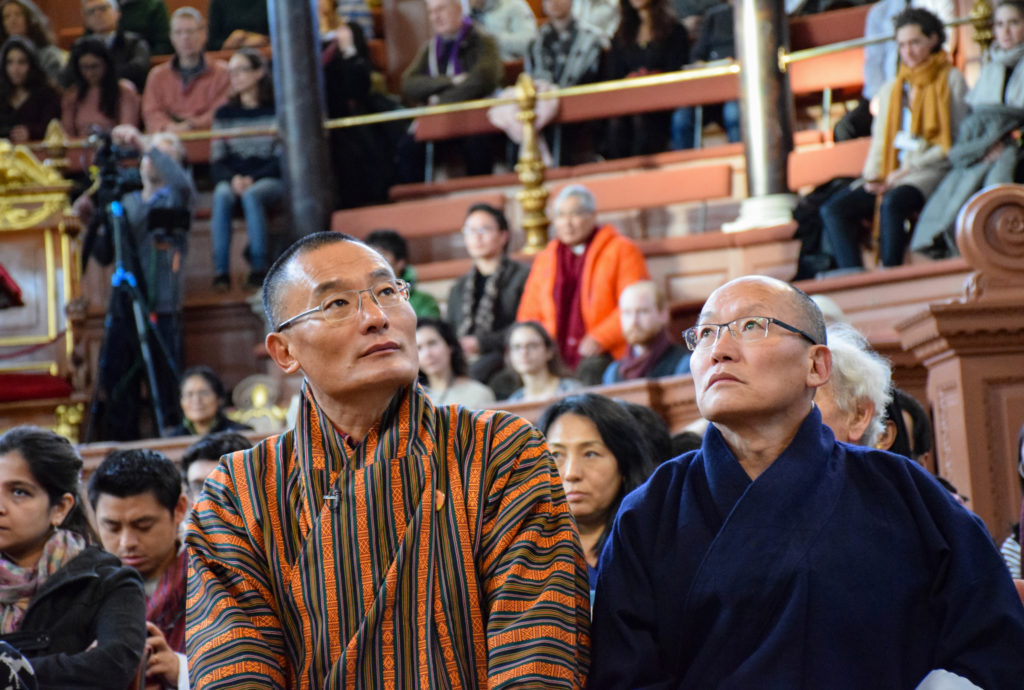
Two Distinguished Lectures on Bhutan: The Land of the Thunder Dragon and Gross National Happiness
An afternoon of two Distinguished Public Lectures on Bhutan, by the Former Prime Minister of Bhutan, His Excellency Dasho Tshering Tobgay, and the President of the Center for Bhutan Studies and Gross National Happiness, Dasho Karma Ura.
The lectures took place at the Sheldonian Theatre.
3:00-4:30pm His Excellency Dasho Tshering Tobgay spoke on Bhutan Matters: Building Happiness with Small Promises, chaired by the former Chairman of the General Board, University of Oxford, Dr Ralph Walker.
5:00-6:30pm Dasho Dr Karma Ura gave a lecture on Development with Integrity: Bhutan’s Development and its Gross National Happiness Index, chaired by the Vice-Chancellor of the University of Oxford, Professor Louise Richardson. Discussants included Martine Durand (Chief Statistician, OECD) and James Foster (Professor of Economics and International Affairs at George Washington University).
This event was part of a larger conference (ISBS Conference) taking place in Oxford, 8-10 January 2019. The International Society of Bhutan Studies (ISBS) launch conference took place at Magdalen College, seeking to develop the study of Bhutanese culture, life and nature in all aspects and encourage, inspire and motivate interest in lesser known aspects and promote and strengthen the areas of existing concentration. ISBS exists primarily to encourage academic exchange, among both Bhutanese and foreign scholars, and secondarily to contribute to the happiness of future generations.
Great news! If you are unable to make it to the lectures, you can still watch it live! Stay tuned! https://www.youtube.com/user/OPHIOxford
ISBS Launch Conference 2019
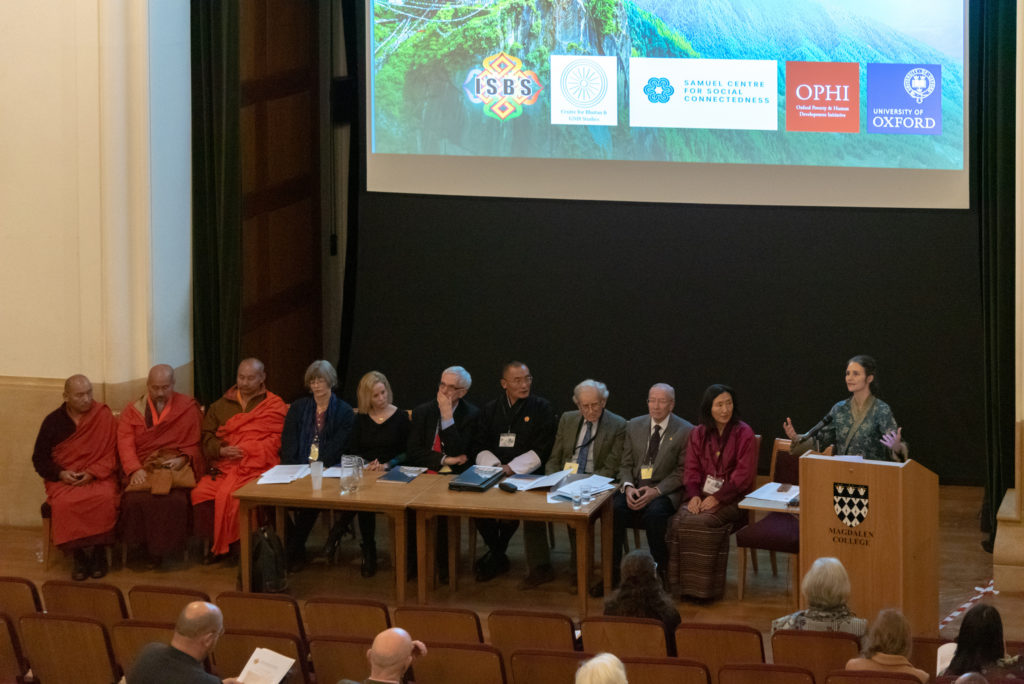
The fascinating and inaugural ISBS launch conference took place on Jan 8-10 2019 at Magdalen College, Oxford. The conference had a plethora of hidden jewels in its papers and presentations – from buddhism to linguistics, anthropology to democracy to Gross National Happiness.
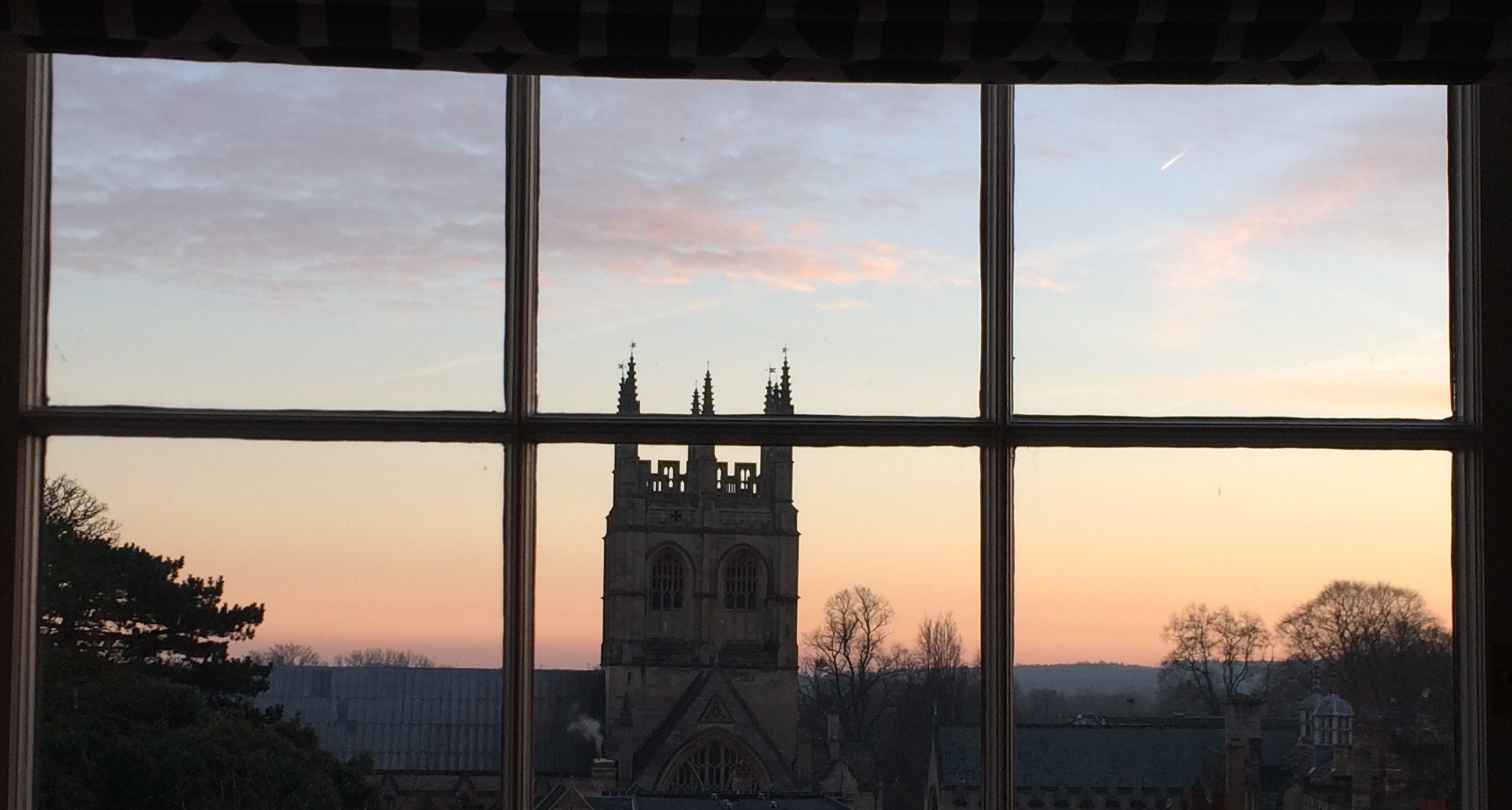
For any enquiries, contact isbsbhutan@gmail.com
WHY ATTEND THE INAUGURAL CONFERENCE OF THE INTERNATIONAL SOCIETY FOR BHUTAN STUDIES?
Fascinated by Gross National Happiness but don’t know much of Bhutan?
Bhutan is one of the world’s youngest democracies, having had its first elections in 2008 with the move to democracy being instigated by His Majesty the fourth King, who ceded the throne to his son the same year. It is also distinctive in terms of geography– being nestled between China and India yet now at peace amid territories with tension.
Bhutan, the Land of the Thunder Dragon, is perhaps most famous for Gross National Happiness (GNH) – the idea that public policy succeeds when it provides the causes and conditions of happiness in its many dimensions, rather than merely when it delivers economic growth. A key part of GNH may be the thriving culture and traditions, and the exceptionally intense Vajrayana Buddhism which underlies these, although religious diversity is evident and changes are in motion. Bhutan has also at times had the fastest economic growth rate in the world, and this was fuelled by hydropower. Policies address ecology in practical ways such as preserving forest cover and stimulating organic farming. Yet given globalisation, Bhutan is at a crossroads with evident social, economic, cultural, ecological and political fragility. Geopolitically strategic, and prominent internationally, Bhutan is home to around 700,000 people – making it delicate – or deceptively agile. So academic research on Bhutan can have practical significance.
A New Community of Scholars: Amazing People
This conference draws together the honourable former Prime Minister of Bhutan who just stepped down a few months ago, an intellectual architect of GNH policies who studied PPE at Magdalen. In addition, among the delegation are Bhutanese eminent politicians,journalists, researchers, students, monks and nuns, and leading intellectuals –both foreign and Bhutanese. It depicts in a microcosm of the kinds of expertise and insights that are emerging from and on Bhutan. It also draws together an important cross-section of the community of researchers on Bhutan across disciplinary boundaries. Throughout the conference, we will seek to further extend and consolidate this community in practical ways – by sharing bibliography, networks, and good ideas from other area studies and communities.
A Multidisciplinary event: Amazing Topics
The conference has a plethora of hidden jewels in its papers and presentations. If you are interested in language, no less than five linguistic papers are presented, with titles as intriguing as, ‘Gongduk agreement morphology in functional and diachronic perspective’. If it’s ecology, you can learn about earthquake resilience, vertical farming, water-sharing, sacred groves, and home ranges for both birds and deities.
In the policy world, papers address values,education, gross national happiness and its policies over time. It also links with Ubuntu and Buen Vivir, social media and elections, India-Bhutan relations,and the trials of multi-party democracy in a small country in the 21st century,
Anthropologists probe in-country migration, post-mortem practices, ritual chants, food culture, and archaeology. Legal scholars talk of rights and modernising dispute settlement mechanisms. Biographers trace women’s empowerment via Gelongma Palmo, Tsangpa Gyare and pedagogical styles, and sacred geography via Padmasambhava. In the spiritual realm, papers address topics such as whispered treasures of mind-body practices and astrology. In the first plenary, three highly accomplished ritual and meditation masters speak on Masked Dances, Religious Music and Chants, and Mandalas – all chaired by a highly respected writer and teacher on Christian contemplation.
Indeed the chairs of the events themselves represent a broad cross-section of the University as well as of Bhutan’s society, with representation anticipated from Oriental Studies, Development Studies, Area Studies, the Business School, the Blavatnik School of Government,Anthropology, and Administration.
To top it all off: An Afternoon in the Sheldonian Theatre
As if that feast were not enough in itself, there are two public events in Oxford’s gracious and appropriately atmospheric Sheldonian Theatre. Dasho Tshering Tobgay, former Prime Minister of Bhutan, will reflect on Bhutan, a ten-year old democracy that, like many ten year olds, stands at a crossroads with future uncertain. Next, Dasho Karma Ura, the architect of Gross National Happiness concept measure and policy, will discuss Development with Integrity, chaired by the Vice Chancellor of the University, Louise Richardson. Because the concept and measurement of well-being are of intense interest, with the OECD just releasing a proposal‘beyond GDP, Martine Durand, Chief Statistician of the OECD and James Foster, the highly cited and far-sighted economic theorist, will respond. And as if the intellectual treat was not sufficient, between the two distinguished lectures, to make the experience appropriately well-rounded the Sheldonian will be filled, perhaps for its first time, with Bhutanese songs and dances.
We hope to see you there, and hope to engage you, your skills, reflections and research in years to come.
Journal of the International Society for Bhutan Studies (JISBS)
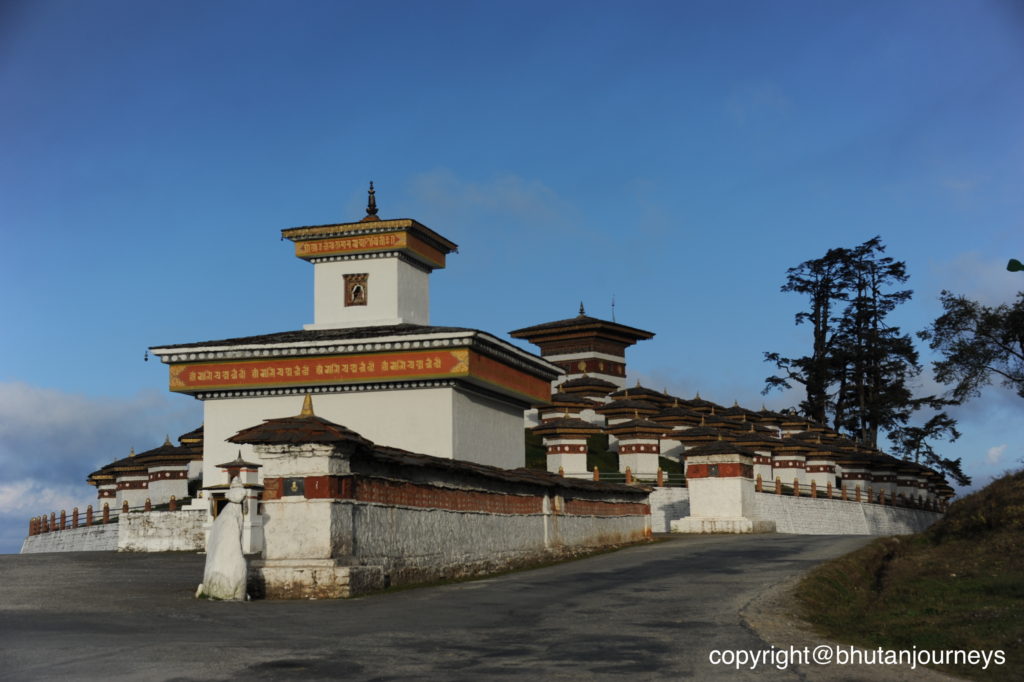
JISBS Overview
JISBS is an official publication of the International Society for Bhutan Studies (ISBS), which convenes the world’s major conference for Bhutan Studies. The conference results are published in the Journal of the International Society for Bhutan Studies (JISBS) series. All scholars of Bhutan, whether members of ISBS or not, are welcome to submit work for consideration to include in JISBS.
Submissions to the Journal of the International Society for Bhutan Studies
JISBS is a refereed journal. This ensures that the scholarship published in the journal meets the highest academic standards. It also gives contributors the credit they deserve for having a peer-reviewed publication. Each article is sent out for “blind review” to a scholar who has expertise in the subject matter. Every article is also reviewed by one of the editors. “Blind review” means the author’s name is not divulged to the reviewer. The identity of the reviewer is also kept anonymous. This process is meant to guarantee that an honest and impartial assessment can be made of the work submitted to the journal. The reviewer provides an assessment as to whether the article deserves to be published in JISBS, and the feedback that the reviewer offers is forwarded to the author with an eye towards improving the article.
Submissions are accepted in English. Initial submissions can be sent to the editors as an MS Word or RTF (Rich Text Format) file in any standard academic style. PowerPoint type files prepared for conference presentations cannot be accepted as such for inclusion in the Journal. Further instructions for style will be provided following the initial conference.
Submissions may include properly prepared pictures and audio-video data items.
Schedules and deadlines for submission will be provided to conference participants in a future communication.
Authors should send submissions as attachments via email to the editors, John Ardussi (ja3qb@virginia.edu / jardussi@hotmail.com) and Toni Huber (huberton@hu-berlin.de).
An abstract of no more than 150 words should accompany every manuscript.
If you haven’t previously done so, please also submit a short biodata narrative of no more than one-hundred words that includes your current academic affiliation, references to one or more publications (if applicable), and your current area of research. Biodata should also include links to home pages and should provide full contact information (address, email, fax and telephone numbers).
